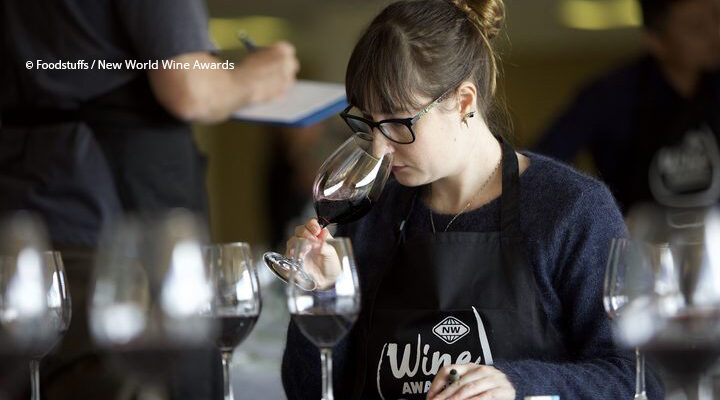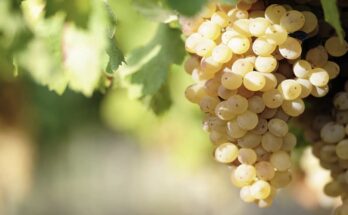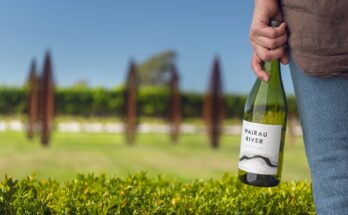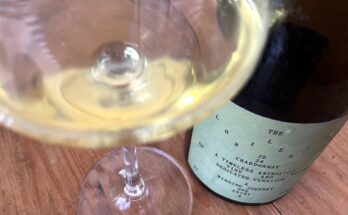I’m finally getting around to talking to Dr Rebecca Deed, who was my ‘panel leader’ at the Royal Easter Show Wine Awards this year. Rebecca is a Senior Lecturer in Wine Science and by all accounts a very sought-after judge at Wine Shows.
WineFolio: Great to catch up with you – even if we have resorted to doing it through Zoom! I have to say I’ve done a couple of these, with mixed results! One of the recent ones was Chris Scott, when Church Road were just releasing some new wines. And that was an interesting chat, but I do find Chris a great person to talk to anyway. He’s a good interviewee, and that’s not always the case, not at all.
Rebecca Deed: Yes, I can imagine it could be quite challenging sometimes.
WF: Anyone who ‘wears a mask’ – by which I mean has a public persona – typically, for example, high-performing sportspeople. Don’t want to show weakness, always want to win, don’t want difficult questions… or captains of industry. Hahaha.
RD: There’s a level of comfort as well. I imagine some people are quite comfortable being interviewed, whereas others could be more reserved.
WF: And I always try to do it person to person. I get a lot more out of it. You can always steer a discussion in directions that you want to go – whether in person or over a device. Speaking of which – here we are, talking over the internet – that must have changed how your job operates… what’s been the challenges for you?
RD: We’ve just found out that all teaching for the rest of the semester is online, regardless of alert changes. So back to all online teaching. Makes it tough, especially when you run a wine tasting lab! I mean, that can’t happen online. It’s just impossible, and I haven’t been able to think of an equivalent. Other than sending wine out to students, but logistically that’s impossible – for a class of ninety (laughs). So it’s really tough.
WF: So what do you do? Just talking theory?
RD: I make alternative worksheets, assignments, and they have to write a tasting note based on technical data of a wine instead. Which is still a reasonable assignment but it is definitely not the same as having them in person – tasting actual wine. For the post-grads we did actually send them wine in the mail, which was quite cool. They got a couple of wines and contrasted them.
WF: Teaching people the theory of making wine – is that part of what you do?
RD: It is a part of what I do – for the postgrad course, which is essentially a winemaking course. So students want to become winemakers. I teach the part about wine microbiology – the yeast and the bacteria – all of that element. And the sensory as well. How that fits in with winemaking.
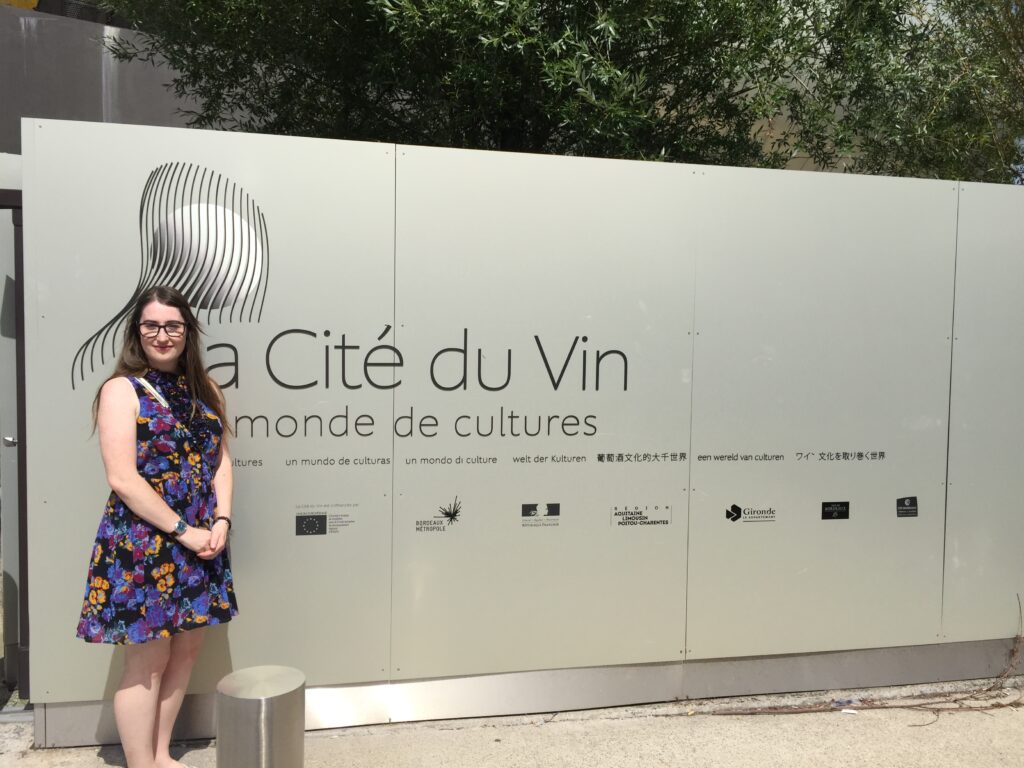
WF: So how do you get into that?
RD: Really, I fell into it – it wasn’t a defined path. I navigated through my studies and it is where I ended up. I started off doing an Honours project in plant science. Completely unrelated – Magnesium deficiency in a small weed and how that impacts on the genetics of that plant. Then my professor at the time – Professor Richard Gardner – was starting to move into wine yeast research. He made a pact with me – “if you get a certain grade for your dissertation then you have to come and do a PhD”. So I did get an A+. I went on and did a PhD with him in “wine yeast and the impact of low temperature fermentation on yeast aroma production”
WF: I was just typing up a chat I had with Kevin Judd, and there’s a bit in there where he talks about that, and how his winemaking philosophy changed.
RD: Yes, and look at him now – Greywacke wines are very much the top level of wild yeast and complexity. I like how adaptable the wine industry is and there is a lot of sharing of knowledge. There’s an excitement that is transferable and people get on board to new things.
WF: Talking to people down in Central – that’s how they got started. They, in many cases, didn’t really know what they were doing, or if it was going to work, even. And I imagine that old school, european way of making wine is probably quite different form what’s taught in Wine School now.
RD: I think there’s quite a push for graduates to experience wine outside of New Zealand. Particularly if they want to become winemakers. We do encourage them to do vintages overseas. Even now, with COVID, we’ve had one of our graduates go over to Greece. So you get to experience the ‘old way’ of doing things as well as what you’ve learnt in the classroom. And I think that’s true of New Zealand being very collegial. You’re still competitors in the market, but it’s really only until you get into aspects like low alcohol wines where the sharing only goes so far! Then there’s a patent and it’s interesting looking at the dynamics of the industry in that way.
WF: So moving on from study… going from science to wine – was that a step that you thought would be interesting and fun?
RD: Not initially. I didn’t really drink much wine when I was in my early twenties. It wasn’t something that was really on my radar as something that I was particularly interested in. So through science is where I got exposed to wine as a beverage, and that’s when I found that I really enjoyed wine itself. I could pick out some characteristics and that I had a reasonably good palate. And that was quite a revelation to me. And I was really into perfumes at that time and I thought maybe it was because I’m used to smelling different aromas, and it was a natural parallel.
WF: Did you consider working in perfumes, scents?
RD: Probably not. I took more of a biological pathway rather than chemistry, so I would have had to take more chemistry papers as an undergraduate. Which wasn’t my natural ability. That’s ironic given that I’m now part of the school of chemical sciences (laughs).
WF: When I was studying, I lived in a big old house, shared with numerous other students doing lots of different degrees. And one person was studying chemistry and specifically interested in perfumes, so she would bring home these ampoules of scent – some were liquids and oils, others were powders. And we’d go through them and try to note down what we could pick out of each one. So she might say ‘what’s in this one?’ and I’d say I could smell, raspberry, bark and violets.. and she would say ‘well, it’s orris root’. And so now I have to stop myself going down the rabbit hole of that whole world of scents, because if I was to taste a Syrah and say it has aromas of orris root – people are going to think I’m pretentious – or at least not have a clue what I’m on about?
And I do find it strange that one of the most common descriptors for New Zealand’s most important wine – Sauvignon Blanc is ‘gooseberries’ – because who has gooseberries here in New Zealand? We had them growing in the garden back in the UK, but I’m guessing that the majority of human beings have never eaten a gooseberry.
RD: I can’t say I’ve ever tried a gooseberry in my life.
WF: Are you someone who is interested in ‘flavour’ generally? Do you have a whole pile of cookbooks and go looking for unusual ingredients?
RD: Yep, very much into cooking and baking. Cocktails, mixology – one of my big hobbies. Particularly tropical cocktails, so tiki culture… Mai Tai’s. Yeah! And I do have some Chardonnay vines in my back yard, so I’m going to make some Chardonnay at home! Lockdown hasn’t been too terrible.
WF: I ended up in wine because it was something that I was quite interested in. I’ve done general ‘leisure interests’ writing – so I might be asked to write about art and culture, or food, or music; and then when I moved to New Zealand I took the opportunity to work in Tourism – and why not – it’s a fantastic tourism destination.
RD: I can see that it’s a natural progression from journalism and tourism, into wine. Yvonne Lorkin had that TV series that was quite fun.
WF: Now, I really liked that. I like the stories, and I thought that series was quite inspiring, where she would talk to the people, and then get to the wine at the end. I do combine that tourism angle into my wine writing. It’s my intention to visit every Cellar Door in the country.
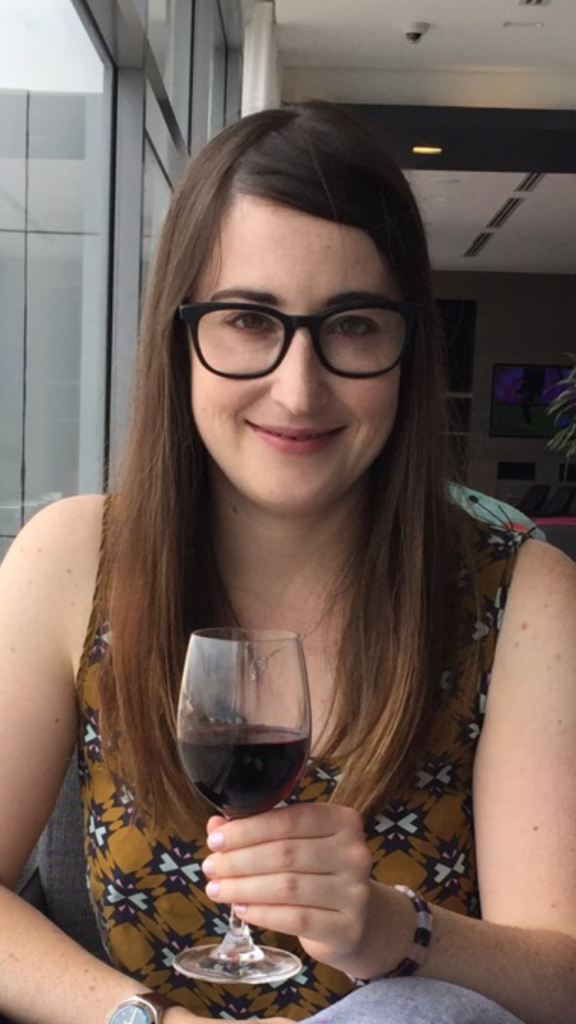
RD: Ooh – so where are you up to?
WF: I dunno – I really ought to make a map and cross the places off as I go. I must have done a couple of hundred by now. I moved here from Bristol in the UK, and I’d been to every pub in Bristol.
Would you say that you now work more in ‘wine’ or in ‘science’?
RD: At the heart of me I’m still as scientist. Who happens to do wine stuff. That’s the fun, peripheral bits. But most of my research is on wine in some form. One of my students is looking at yeast forming clumps – so flocs during fermentation – and whether we can increase the colour and intensity of Pinot Noir from that behaviour.
We found that the more that they clump together, the deeper the colour you get from the Pinot. Whether or not consumers prefer a deeper colour in Pinot – winemakers are a bit concerned.
In the process, with malolactic fermentation and additions of sulfur dioxide you can get colour bleaching. So a deep colour up front can be beneficial. So that’s quiet a cool finding from Katasha’s work so far. Getting a good result is great, because a lot of science experiments don’t work! (laughs). But to me it is really fascinating.
WF: That sounds really fascinating, yes. But then something that I’m really interested in – for example might be the solera system. And I’m fairly obsessed with that. And I start talking to someone and within twenty seconds you can see them just glaze over!! And I get upset because I want them to feel an interest in it, but they just go ‘nope, that isn’t interesting’, so I just have to accept that it takes all sorts…
RD: Well you can talk to me about the solera system, because I think it’s fascinating too. And flor – the flor yeast and how, if you look at it under a microscope – different ones – you’ll never get one that’s identical. Every flor is different.
WF: Well, to me, I’d say it’s bound to be. I have a bottle of ‘Malaga’ which is a fortified wine from southern Spain, and the Solera dates from 1885. And my wife hears me talking to non-wine people about things like that, and she’ll just kick me under the table.
But, going back to wine science – is it a case of you go to work in the morning and it’s ‘yay, wine tasting today!’? Is that a thing that brings joy to your work?
RD: Yes, and wine judging. It’s like catching up with friends that you haven’t seen in a few months, since the last time you were judging. I think it does also directly impact my research to some extent, because I do get ideas from the people and the winemakers I talk to. But if I suddenly couldn’t judge one day, I’d still have my wine research and career.
WF: How did you get shoulder-tapped to do judging?
RD: When I was doing my PhD, Randy Weaver was the Director of Wine Science, who was ex-Coopers Creek and a well-regarded winemaker in New Zealand. He said that the Royal Easter Show was looking for stewards, and that anyone from Wine Science could participate. So I put my hand up to be a steward at the show and enjoyed it. Got to know a few people there and got asked back the following year by Shona White, the Wine Show Queen, and after a few years of doing the stewarding I got to know some of the judges. Jane Skilton, Geoff Kelly of course.. and they became mentors, and I shared some of my wine tasting experiences with them. Got to know them pretty well. And I did the WSET course with Jane as well, which I really loved. I also got to know Kate Radburnd quite well, and all those people suggested that I try out judging.
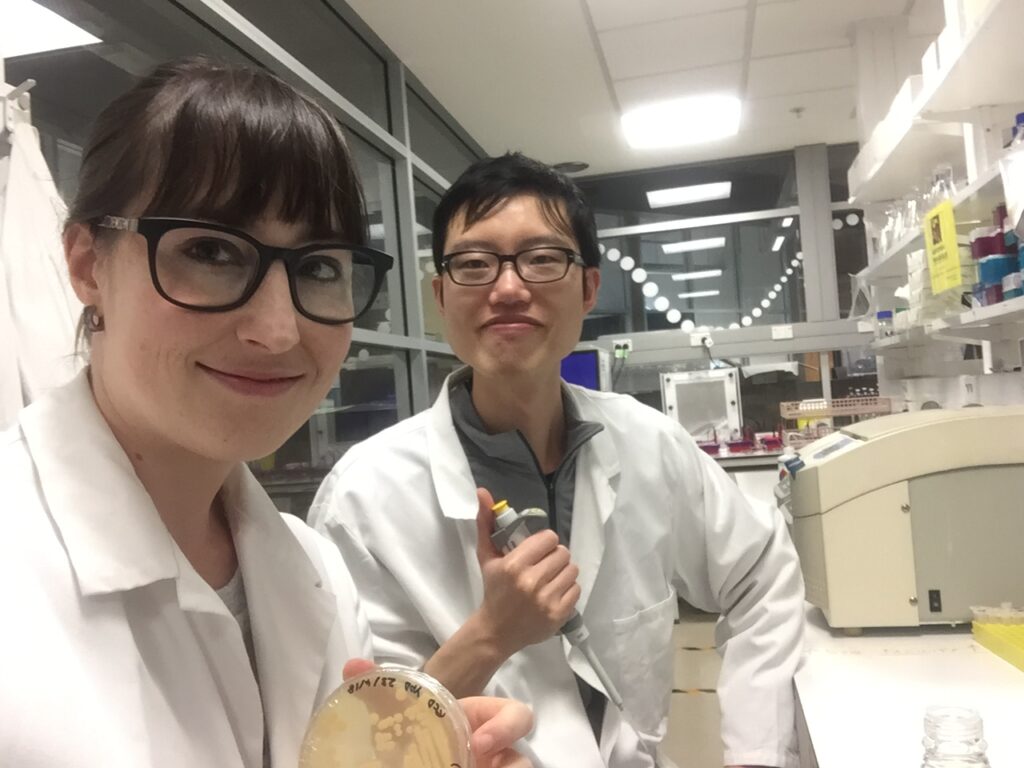
So from there I became an associate judge, had a go and did that for a few years. And then eventually I got promoted to Senior Judge and I’ve been a Panel Leader for the past couple of years. It’s a very collaborative, supportive environment. Particularly the Royal Easter Show – it’s the one where you feel you’ve got mentors.
WF: I do tastings with WineFolio, and one of our distinctions with that is we usually don’t have winemakers on the panels. You’ll have seen at the show, where you were my Panel Leader and I was an associate judge – that I don’t have any background in winemaking, at all – so all my knowledge in wine is really from the consumer side of things. Of course I talk to winemakers all the time, but even then, I’ll sometimes say ‘errrr, what does that mean?’
RD: I think there’s a lot of expertise that’s just as valid as having a ‘winemaker judge’. We can’t exclude people based upon not having a certain credential. I think that’s something in the wine industry that we really need to move away from. There is still that sense of snobbery.
WF: Funnily enough that’s one of the questions I wanted to ask you. As you become more ‘expert’ at understanding wine, and really knowing the ins and outs of it… and I’ve been accused of this – is that you are seen as a ‘wine snob’.
RD: In my classes I try and step back from the fact that I am what would be considered an expert, and not your typical consumer. I have to assume there is no knowledge or technical info. I think that’s really important because otherwise they don’t have the confidence to taste the wine and they feel very scared to say anything during the labs and to give an opinion because it seems so daunting. It’s important to be aware of the fact that this is a thing in the industry. And wine is perceived as being a product for a certain type of person. That you have to ‘know’ to enjoy it.
It doesn’t help that fine wines from Europe for example are quite prohibitive now, in terms of price. At one point in my life I did consider trying to climb the ladder up to Master of Wine, but I mean financially I just can’t do it. I don’t have the money and it’s just not possible for me unless I had a sponsor.
WF: It’s a shame that those great wines are now ‘tradeable commodities’ like stocks and shares. One good thing I suppose is that in New Zealand we have some wines that are like a mirror to those great wines. You might think I want to try a Grand Cru Clos de Vougeot, but you can have a Felton Road instead? You want a Montrachet? Have a Kumeu River… any thoughts on that?
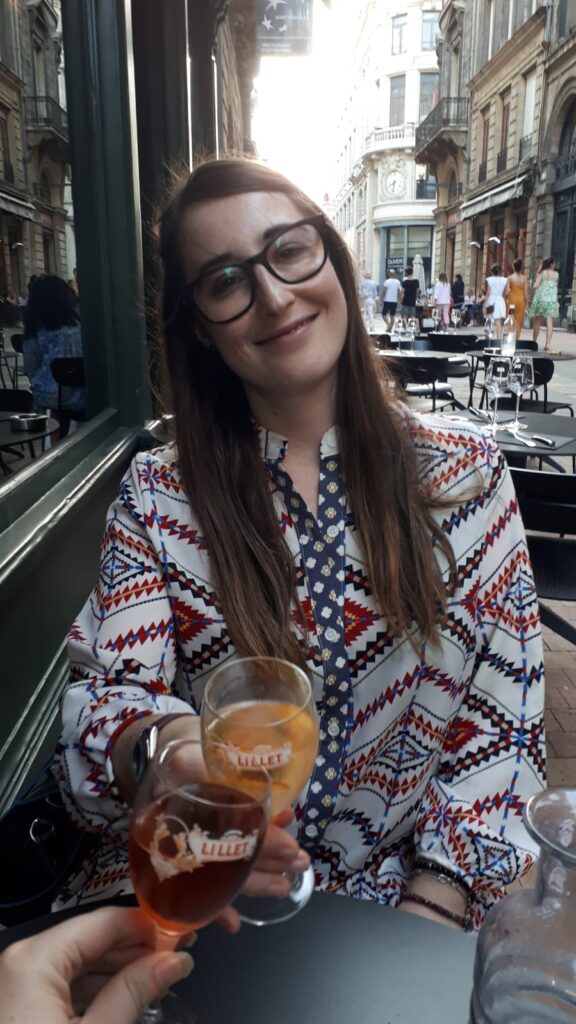
RD: Definitely can’t write off New Zealand – it makes some stellar examples. You can still go to tastings – Caro’s for example do some tastings of European wines. For some you don’t have the equivalent – like Barolo and Barbaresco. But personally I buy a lot more New Zealand Pinot Noir than I would ever buy a burgundy. For several reasons – one being the price is much less. And the quality is just as good, if not better, and more consistent. And I prefer the New Zealand style with it being a bit more fruit forward and mouth-filling. We’ve got some go-to’s like Rockburn and Two Paddocks.
WF: And more approachable. I mentioned Clos de Vougeot and really it is ten years before you should be drinking that. Whereas something like Valli – we had the 2019s in the WineFolio Top 10 tasting – and they would absolutely scare the pants off a burgundy, and they were 2019s – drinking beautifully now!
RD: I love how Jen has got all of the different vineyards in the sub-regions and you can really see the terroir between those wines. It’s just like in Burgundy.
WF: And I think that many of our wine regions will go down that sub-regional definition road. What do you think might be next for New Zealand – is it that fine-tuning of what sub-regional wines do; or something else, like a varietal that bursts through?
RD: It’s going to be hard to push off Sauvignon Blanc. The Marlborough style is still going to be our big winner in terms of exports. I think Pinot Noir is still important and if we can manage that yield/quality question and produce something with high yield that still maintains quality that will have huge impacts. Overseas they are looking at that $25 a bottle mark. If we can get Pinot on the shelves alongside the Sauvignon then that’s a big win for New Zealand. I think Albarino is exciting in New Zealand. We make some outstanding examples.
WF: I’ve been quite surprised by Albarino, because I was sceptical. But I’ve had a couple recently where I just thought ‘whoa, hang on!’.
RD: I’m quite keen because I’ve got a student lined up next year to look at the aroma profiles of New Zealand Albarino, and then have a comparison with the Spanish Albarinos. We can see if we’re starting to have a ‘New Zealand style’ which could be fun. And New Zealand Chardonnay is under-rated worldwide. Some of our Chardonnays are just as good as anywhere.
WF: I’m always keen to hear what people answer to that question. I was pleased when a couple of people said Syrah.. but it’s so small. And I often think ‘sparkling’ myself – our quality is so good. But sparkling has massive limitations. Not only the C-word, but every wine country does sparkling and are generally really proud of their own. So, go to a restaurant here and yes, you will see a New Zealand methode on the wine list – but you won’t see one on a list in Australia. They’ll be promoting their own versions.
So, yes, I guess that Chardonnay could be the one. I did smile when the first couple of people said Chardonnay because I thought it’s a bit of an easy answer. But then – and I think I’ve only really seen it over the last couple of years – is that overseas writers are really starting to get on board with it. In particular the UK. I thought it was a really smart move when Hawke’s Bay Winegrowers sent out that box of twelve top Chardonnays from the 2019 vintage to writers. Because, then it’s not just the odd one here and there – Kumeu River or Pyramid Valley, or whoever – now it’s twelve absolute bangers from one place, one year – and yet despite all being superb, they were subtly different as well. And after the release of the 2020 vintage I went back to Paul Brajkovich for a soundbite about how well the wines had been received and he was just smiling from ear to ear and said “yes – it’s gone really well”
RD: Michael really knows how to make his Chardonnay that’s for sure. He’s a very measured, intelligent winemaker. Knows his science as well, which I respect him for.
WF: Going back to your mention of Albarino – do you think that global warming is going to have an impact on what is grown here?
RD: I think so, we’ll have to worry about alcohol levels climbing. I think that’s the big one, and a more short-term worry. So any techniques we can use to mitigate that will be important. Especially with canopy management. We’ve done some work with yeasts – trying to reduce alcohol through them but that’s quite challenging. You only usually get a very limited decrease. You may see some other varieties in different regions.
WF: What about other things outside of the vineyard – like glass and water useage?
RD: All of those things are at risk with global warming. Everything is going to get more expensive, and we’re going to have weather patterns that are problematic – you can see that already now. Harvest is getting earlier each year because we’ve got these warm growing seasons. It’s real. We’re really seeing it and it depends on how fast it is going to move.
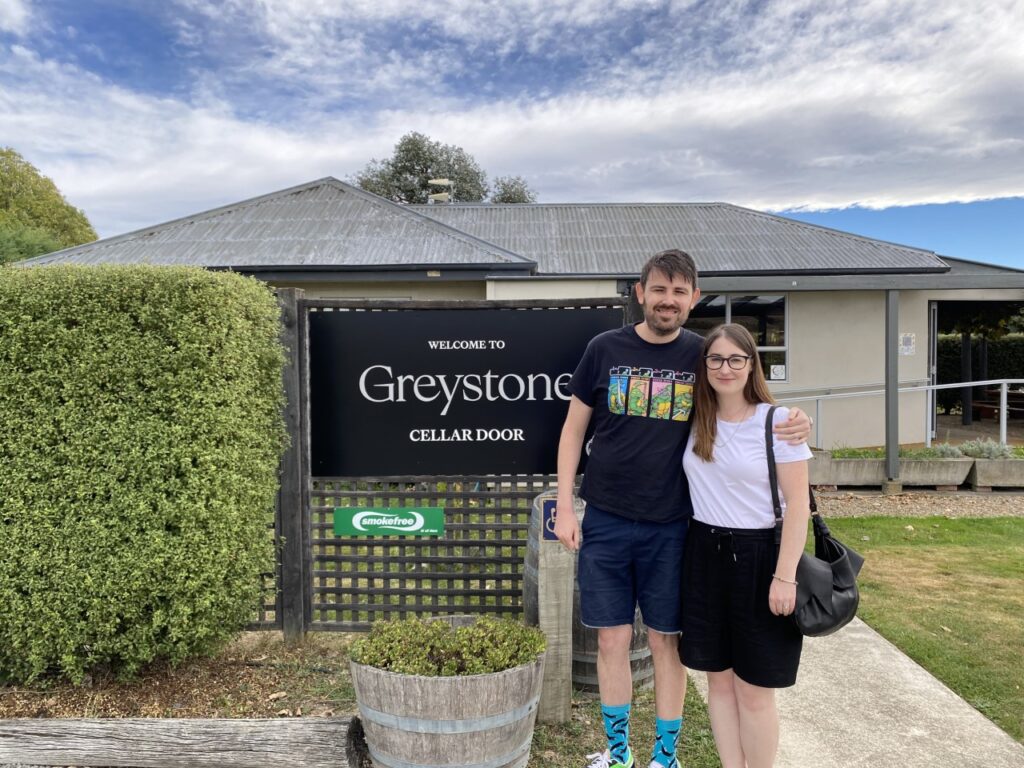
It’s interesting that Bordeaux have changed the appellation rules to allow for different varieties that are not traditional to Bordeaux, like Touriga Nacional. Seems crazy – the French are usually so strict with their appellation laws. The New Zealand industry is adaptable though. Just look at the screwcap initiative – we can push to something new when we have to.
WF: I worry about how wine is perceived as well – in that whole mix which includes global warming. Should we be putting all this energy into creating what might be seen an older person’s thing – or a ‘rich mans’ thing? That perception?
RD: I don’t think there’s risk of that at this stage. Our export market is so big and it is driving a lot of the decisions that we make, in what we plant and what we produce. I know a lot of young people today don’t drink wine. Even my students who take the course say “I don’t drink wine, but I’m happy to try it”. They’re quite conscious of their health and I think that’s why low-alcohol options are becoming quite important whether we like it or not.
Demand still exceeds supply though. This has been a low-yielding vintage and I know people have been scrambling to increase their Sauvignon Blanc volumes. So Hawke’s Bay Sauvignon Blanc has been put into Marlborough Sauvignon Blanc. De-colourised reds have been used to amp up the volume where they can. There’s still that very big global demand, but who know in future?
WF: Thoughts on things like ‘natural wine’?
RD: They have their place for sure. They’re a very valid part of the market. It’s a good way for a lot of young people to get into wine. It is seen as different from what their parents drink. It comes from that craft beer mentality. Do I drink much natural wine? Not really (laughs).
WF: Does it get covered in the course at all?
RD: It does – particularly in the post-grad course. We talk about how as a winemaker you will have your philosophy and that might change over time.
Sometimes you do get people going into the natural wine industry who don’t have a background in winemaking, so there is that risk that you get faulty wines that are not good. That can then taint the perception of natural wines.
WF: I noticed, on social media, you had been down to Waipara recently. It’s a really interesting region, that does have that natural, and experimental winemaking facets, as well as the more established ones, and then some really old world style vineyards – but a New Zealand version of all of that…
RD: I fully agree. My partner, Blair is from Christchurch. So when we go to visit his parents we usually go to at least one winery in Waipara. We’ve done Pegasus Bay, Black Estate and Greystone. Trying to tick them off one by one. That vineyard ferment from Greystone – that’s phenomenal. There’s no fault or taint in it at all, which considering it is from the pied de cuve. That’s quite a risky technique. On Waiheke with our students we tried to do a pied de cuve a few times and it is really difficult to control. Most have not smelled great, and had to be tossed. Hat off to them for doing such a good job.
WF: What do you think makes a wine a great wine?
RD: I think harmony – so harmonious in all aspects from start to finish. That goes with balance. Varietal typicity. I think that’s a concept that might be difficult for some consumers to know what is meant by that as well. But to me that’s something really important. It can come in a wide range of styles but still have varietal typicity.
WF: I think that is under-rated and very important. What about ability to age?
RD: I don’t think that’s so important. It depends on what it is. I love a good early-drinking Marlborough Sauvignon Blanc that’s full of thiols – I definitely don’t want to age it. I really don’t like the asparagus, green pea character that you get from those (laughs) but early one… yeah I love them. I guess ageability had traditionally been part of quality. If you’ve got a wine that can age, that shows it really has the bones.
WF: Do you have favourite wines?
RD: I do. I have lots of favourites. Where to start? I guess in terms of Chardonnay I’d say Kumeu River Matés, but I love American Chardonnays as well. Hartford is one of my favourite producers that Caro’s were stocking. And I’ve got good memories of that too, because it was probably the first time my partner had tried American chardonnay and he just absolutely loved it. We kept buying the Hartford Estate wine and have got a couple of the single vineyard ones in the cellar as well.
Two Paddocks is quite special to me. It links in to our anniversary. We went to the Sugar Club for our anniversary dinner and we had that wine with the dinner. It’s a combination of the wine and the experience.

All of my favourite wines are linked in with memories. My favourite New Zealand sparkling is Pelorus – it always delivers consistently and always delicious. I love a champagne whenever I can! (laughs – a lot) I think I use any excuse. Every time I get a publication accepted, I’m like ‘right it’s time for champagne’. Bollinger is probably our favourite champagne.
WF: Do you have a collection of wine?
RD: I do, it’s at my parents place, because we just moved house. But we do actually have an under-house storage area in our new house, so that’s going to be converted into a cellar at some point, for sure. I don’t have that many wines – maybe about a hundred. It’s an OK number. I used to work at Caro’s for a bit on Saturdays and I got paid in wine. So that helped to amp up the cellar. I’ve got some quite interesting Super-Tuscans and Spanish wines from Caro’s. Some Barolo, Brunello which is quite exciting.
WF: Now I remember at the Judge’s Dinner you brought a bottle of chinese wine.
RD: That was from my Master’s student who gave me two. They were both actually pretty decent. It’s maybe a novelty. Even if the wine is not amazing, it’s still a good talking point. I love that about wine – it really does bring out the stories.
WF: It’s very personal as well isn’t it? Down to your taste, in a way that I think music is similar. I’m not necessarily going to like what you like. Someone was talking to me about how wine is like art, but I didn’t agree…I come from an arts background, and I reckon that these days ‘art’ can be anything. You put it on a wall and say it is art – then who’s to argue with you? Music has a bit more structure, style and can be more easily understood, and critiqued? Our memories and tastes will shape what music we like, just as they will with wine.
RD: I think that it is also true with wine that you could have a style that you don’t particularly like, but you can still recognise it as being high quality. And the same for music? Especially if you know a little about music, you can recognise quality and structure. You may not necessarily like it, stylistically.
WF: Yes, or it can be – and this brings me round to something else I want to talk about – critical acclaim. You’ve heard this won best of something – Grammys, Oscars, Champion wine.. and you watch it, taste it – and think ‘well this doesn’t do it for me?’
What do you think of the role of critics and reviewers in driving opinion?
RD: Hmmmm. I think they’re very important. They do play a key role. Particularly in defining new styles, and quality. At the same time I think it’s good to have your own opinion on wines and what you like. A bit of give and take. A reviewer may direct, but it’s up to the consumer to decide what they actually like.
WF: I’m quite comfortable to be the one person in the room who doesn’t agree – who thinks it’s amazing, or rubbish! If I’m just not ‘on the page’ then at least I can be honest and say so! Hahaha.
RD: And I think that’s important. We don’t need everyone to be in agreement and “oh this is amazing”. There has to be a bit of thought and critical discussion.
WF: And going back to judging – how do you think the Wine Show way of doing things works – pros and cons of that?
RD: I think one of the ‘pros’ of it is that they do what they were designed to do, which is essentially to “improve the breed” much like an agricultural show. It is as similar for wine as it is for a sheep. You’ve got a certain level of quality that has to be reached to gain a medal. In that sense it is successful. I think consumers do make judgements whether to purchase based on medals. I think it is a good part of our industry, but is the be-all and end-all – probably not? You do get some differences from show to show, in terms of what wine will get a Gold, and then the next show they get a Silver. You don’t want a show that has a quota of trying to get ‘this many Golds’ because that’s not real.
WF: I think the other option for Joe Public would be to find a critic that they agree with – whose tastes match their own. And how many of people, who might casually have a bottle of wine now and then, are going to go to the trouble of doing that? You’ve got to be fairly well into your wine to spend time researching wine scores, and make a distinction between Cameron Douglas or Bob Campbell – or even know who those people are?
RD: I think it is good that wine is getting a medal because it doesn’t have any faults – that’s important.
WF: It’s good that you are getting twenty people in a room to gather an opinion on a wine, rather than just one person’s thoughts. I have to say, I found it quite challenging. I can definitely do a fair few wines over an evening and give them reasonable attention – but when you’ve got lines of over 30 or 40 and to do them in an hour…and to get it right!
RD: That’s why you have a team! Its not possible for a single human being to do that many wines and do it accurately.

